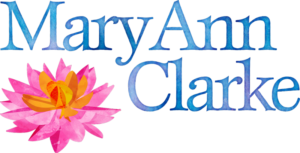Education is More Important than Ever to Prepare for Future Jobs
Continuing from Monday’s post:
Jeremy Rifkin, American economic and social theorist, presents the argument that an emerging zero-marginal-cost sharing economy will make itself felt most strongly in the labour market, where “new employment opportunities lie in the collaborative commons in fields that tend to be nonprofit and strengthen social infrastructure — education, health care, aiding the poor, environmental restoration, child care and care for the elderly, the promotion of the arts and recreation.” (The Sunday Review, March 15, 2014 and on CBC Ideas.
In this new economy, the youngest generations at last emerge to take the upper hand. They who have been weaned on digital communication technology and the new social practices that accompany it will be best suited to navigate this new economic and social reality.
They who have been weaned on digital communication technology and the new social practices that accompany it will be best suited to navigate this new economic and social reality.
Rifkin argues that the first impact of the “Third Industrial Revolution” will be a massive “rollout of hardware buildout” to accommodate digitization and new renewable energy sources. Overlaid and subsequent to this forty year transformation of our physical plant, the vast majority of jobs in the new automated world will manifest in the growing social economy, including education and welfare.
The trick is to facilitate the change. Despite doubts about the challenges of supporting and realizing this global transformation and ensuring its truly democratic impacts expressed by Bob Rae, Anita McGahen and Janice Stein on the CBC Ideas panel, the alternative, the status quo, looks grim.
All of these changes make possible a better, laterally integrated, democratized society that enables a liberation of human potential unprecedented in human history. Toward this end, new jobs will universally depend upon education. The question remains: who will get it?
It’s been argued that the steadily rising cost of education, combined with increasingly scarce financial aid for students, is taking a professional, or even a basic undergraduate degree, beyond the reach of the working poor, and even the middle class.
Returning to the question of competition for education and jobs, it’s been argued that the steadily rising cost of education, combined with increasingly scarce financial aid for students, is taking a professional, or even a basic undergraduate degree, beyond the reach of the working poor, and even the middle class.
While competing for advanced education becomes more challenging due to rising costs and competition, education alone is not enough to guarantee success.
Students of today, and young workers, must be conscious of how technology is changing the very fabric of our world, and therefore influencing the shape of the job market in the near and distant future. Making wise and fruitful educational choices depends upon being able to see into the future and to strategize accordingly. They may intuit and take for granted the new world they live in, including technology and the new sharing economy, but they will do better to understand how it works, how it differs from the world of the past, and their place within it.
Students of today, and young workers, must be conscious of how technology is changing the very fabric of our world, and therefore influencing the shape of the job market in the near and distant future.
As baby boomers prepare for retirement, it is important that they also consider the legacy they leave behind. They must not turn their backs on a world that is increasingly difficult to understand. Rather they must ask: Are the youth who will replace them prepared to function, run and thrive in the society that is emerging in their wake? And what can be done now, while they are still in positions of power and influence, to ensure that the next generation will succeed?

